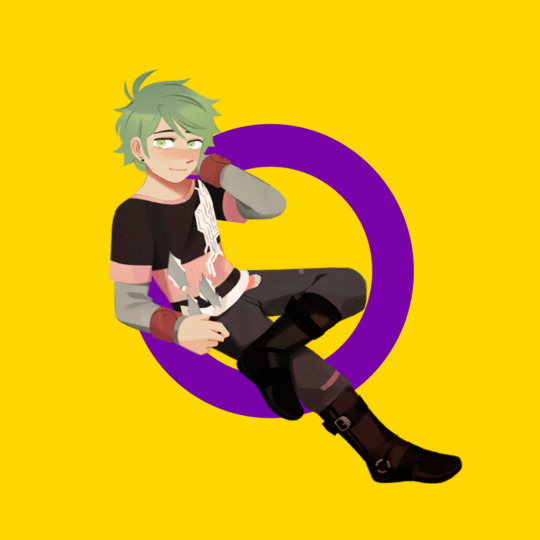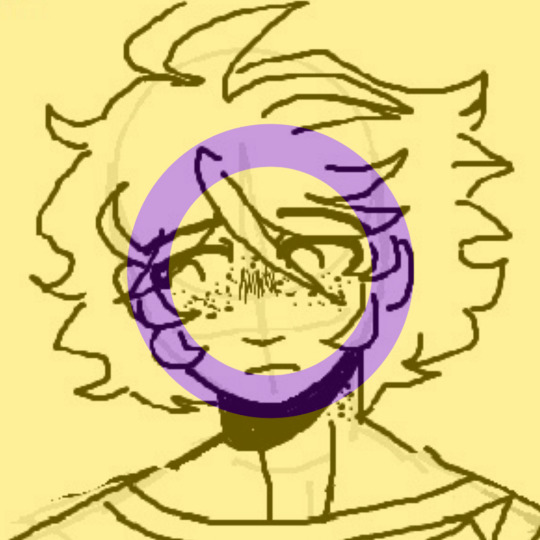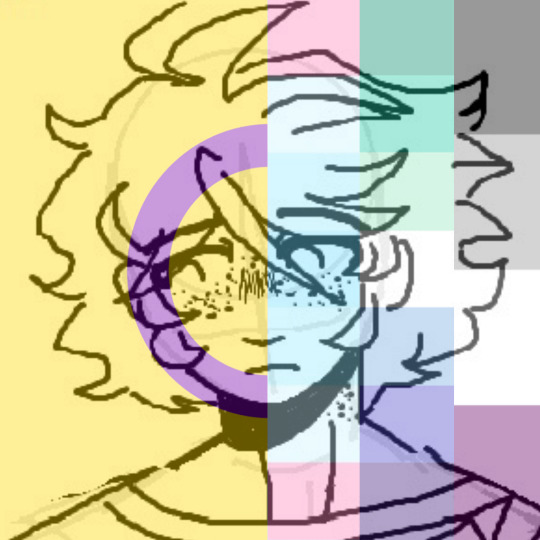#Polycystic Ovary Syndrome
Explore tagged Tumblr posts
Text
no, no, my chronic pain isn't that bad, really– AAAAAAAAAAAAAAAAAAAAAAAAAAAAAAAAAAAAAAAAAAAAAAAAAAAAA –pardon me, anyways, it's practically unnoticeable.
#chronic pain#pain insomnia#fibromyalgia#This ones for my fibro sufferers who are dying with the weather changes#Ily all#ethers danlos syndrome#hEDs#endometriosis#pcos#polycystic ovary syndrome#how many tags can i add#hmmm
16 notes
·
View notes
Note
I have a question, what IS hyperandrogenic PCOS ? Because upon making researches/when I got my diagnostic, the explaination given by my doctor was that I had to much "masculine" hormones (androgenes and/or testosterone, she never precised. I'll ask her m'y next appoitement) despite not showing any external sign of it.
Do you talk about hyperandrogenism when you reach a certain level of hormones ? Or am I like fully wrong and excess of masculine hormones isn't a necessity for getting a PCOS diagnostic ?
PCOS with either biochemical and/or physical hyperandrogenism. I explained it in a previous post, biochemical is when blood tests say you're hyperandrogenic, physical is when the effects of androgens (testosterone IS an androgen for the record, just one of them! there's a decent handful, like DHT, DHEA(-S), Androstenedione, and a few others.) are seen on your body. i.e. hirsutism (increased body & facial hair), androgenic alopecia (male-pattern baldness), oily skin, acne, deepened voice, something and other things that you could honestly look up "ftm hrt effects" or something on google and get a good idea what may or may not happen /hj. PCOS *on its own* doesn't cause clitoromegaly/bottom growth AFAIK though. Someone correct me if I'm wrong, please.
Via Rotterdam criteria you need 2 out of 3 criteria below to be diagnosed with PCOS:
1. Biochemical and/or physical hyperandrogenism
2. Polycystic ovaries
3. Oligomenorrhea or Amenorrhea (in simple terms, "menstruating infrequently/irregularly" and "not menstruating at all" respectively)
You CAN have hyperandrogenism and not have any visible virilization, that just means you only have biochemical hyperandrogenism, which would still count you as hyperandrogenic. Same for the vice versa case (visible virilization but blood tests don't show high T levels). If you fit either having polycystic ovaries and/or oligo/amenorrhea, tadah! If not uh, might wanna question your doctor? Especially when the PCOS dx is slapped so haphazardly on folks by doctors to be forgotten about, even when it 100% does not fit them. Plus, try to get a look at your test results if you can and haven't already to see what she calls "too many masculine hormones"!
#not a fave#answered asks#intersex#intersex education#polycystic ovary syndrome#PCOS#hyperandrogenism
28 notes
·
View notes
Text
Ever reach that point in the days before your period when you're so hormonal you could fall out with yourself over a strand of hair, and you actually start praying for your period to arrive and break the fucking tension?!
Yeah, I'm there.
Fuck.
6 notes
·
View notes
Text




ೀㅤㅤEIS & PCOS Intersex
A flag for Intersex beings who have both Estrogen Insensitivity Syndrome (EIS) and Polycystic Ovary Syndrome (PCOS) or are questioning one, the other, or both.
ྀི◟ ͜ ̣̣̥⠀self indulgent. transintersex and transabled do not interact

Do Not Interact
Basic dni, (disorder) abuse believers, endogenic/non-traumagenic systems, anti-good faith, anti-paraphilias, radqueers, harmful transids, perisex afab tfems and amab tmascs, anti-self diagnosis

#🍷. ︵ a lil smth for you#🕯️⸺ siin's coining#💌mail!#mogai#liom#mogai flag#mogai term#mogai coining#liom coining#mogai gender#mad#mad pride#intersex#intersex exclusive#eis#pcos#polycystic ovary syndrome#estrogen Insensitivity syndrome#estrogen resistance#estrogen resistance syndrome#intersex eis & pcos#pcos intersex
28 notes
·
View notes
Text
ha ha i don't get periods ✨️ (i have ovarian cysts)
#unfiltered thoughts#ovarian cyst#polycystic ovary syndrome#why have cramps when you can be in excruciating pain CONSTANTLY!?
3 notes
·
View notes
Note
Self dx intersex PCOS culture is feeling for a long time a weird connection to being intersex and being mildly obsessed about actually being intersex, finding out you probably have PCOS, getting it confirmed later on (no idea if it's actually written down), then finding out because of your PCOS you're considered intersex (which makes sense)
-CCC
.
6 notes
·
View notes
Text
reminder that PCOS is an intersex variation and bullying, harassing and misgendering people who have PCOS isn't helping the intersex community, or anyone else, for that matter. there's no reason to be rude or say it doesn't "count". thats not for you to dictate. you're not helping other intersex people by saying people with PCOS aren't intersex, all you're doing is hurting intersex people when you do so.
635 notes
·
View notes
Text
I consider myself femme, but I'm fat and hairy. I also have a thing for fat, hairy femmes. We exist and I love us!
What I will say is that quite often we're made to feel butch due to our appearance and I've been known to dress and act that way because I was made to feel like that's how I should be. And not by anyone in particular either, just media in general.
I like corsets and floaty skirts and dresses with novelty prints paired with brightly coloured tights and high heels. Not very butch of me. Media tells me that my size and hairyness make me butch but I'm pretty sure that's just undiagnosed, hereditary PCOS.
wlw positivity post "we need more appreciation for hairy and fat lesbians"
stupid comments "omg just say butch" "that's what butch ment before people ruined it"
are femmes not allowed to be hairy or fat? 🤔
26K notes
·
View notes
Text
“Why is my period late?” I ask myself, knowing full well I have a medical condition that causes irregular periods.
13 notes
·
View notes
Text
Intersex is an adjective. Some people with PCOS feel it fits. If we’re just talking about women, there are tall women, big women, skinny women, feminine women, butch women, and everything in between. For some, intersex is just another adjective: intersex women. Using intersex as an adjective takes back power. It can be a language shift that says “actually, I’m okay with my [facial hair/high testosterone/other sex differences]. Those things don’t make me less than.”
201 notes
·
View notes
Note
Hey sorry if this is like,, insane? I genuinely don’t know where to ask this.
So recently I was diagnosed with PCOS and I understand thats an intersex variant. I have hyperandrogism and stuff.
My problem is that it’s not visible, and so I struggle with whether to call myself intersex.
I guess it comes from this internalized idea of what intersex people are supposed to look like and that isn’t a healthy way to think about anything. I just… don’t know where to start unpacking that. I wouldn’t push these idea onto anyone else but I don’t know how to get over them.
Idk feel free to delete this i just wanted to see if you or your followers could give me some advice.
Okay so first of all you're allowed to be a little crazy insane in my inbox I'm literally on the other end /silly
Secondly I am slapping it in your head so lovingly and forcefully that YOU DO NOT HAVE TO BE "VISIBLY INTERSEX" TO BE A ""VALID"" INTERSEX PERSON!!! Intersexuality is so hugely vast and varied (even for people with the same variation!) that there's no one way to "look intersex".
The idea that someone who's intersex is androgynous— whether negative/subtractive (neutral almost elvish androgyny where your traits are so absent or neutral your perceived gender can be up to interpretation) or positive/additive ((")genderfucked("), beard with boobs sort of androgyny where Alot the sex traits are piled onto a person)— is so deeply rooted in both bog-standard intersexism, medical intersexism, and fetishization of intersex bodies. The thought that someone needs to be "both sexes" or "have both" to count as intersex; and when you combine that line of thinking with the three issues above mentioned... yeah. Especially when the medical community WANTS to narrow the scope of "intersex" as much as possible, so everyone can be easily sorted into the male or female box.
Also thirdly there's technically two types of hyperandrogenism, biochemical and physical. Biochemical is when your blood tests say you have hyperandrogenism, and physical is when your body is virilized as a result of the androgens. Traditionally you'd expect someone to have both, but someone can have only one or the other! i.e. biochemically hyperandrogenic but no physical outward signs, or vice versa but the testosterone levels are expectedly normal or even low (like my case! I had biochemical HYPOandrogenism despite having mild physical hyperandrogenism).
I think my advice with Starting to unpack that (which you're doing already by recognizing it isn't a healthy way to think) is just... like, listening to the community? Listening and being a little humble with your own voice if that feels comfortable. You aren't obligated to be a loud advocate, you can also just sort of... exist in the space and start gathering the knowledge and rhetoric that the wider intersex community shares. You're allowed to exist here I prommy <3
#not a fave#answered asks#intersex#intersex education#polycystic ovary syndrome#PCOS#hyperandrogenism#cw vent
20 notes
·
View notes
Text
Hey!! I just learned something today. My brother has been a medical professional for about fifteen years (He started as a nurse but I have no idea what his qualifications are now, he's just really good lol) and he showed me something I didn't even know existed.
So, I've been avoiding asking my doctors about PCOS as I don't fit one of the common symptoms of weight gain from my hormonal issues, but my brother said that there are other types of PCOS that don't make you gain weight, so I should check out a diagnosis ANYWAY.
It's called Lean PCOS and is often hard to diagnose because of the lack of weight gain within the symptoms. Please check this out if you have been thinking the same thing as I have.
(copied medical text under the cut)
Lean PCOS is a type of PCOS that does not involve overweight or obesity. Because of differences in body composition in the types of PCOS, lean PCOS may need different treatment approaches.
Polycystic ovary syndrome (PCOS) is a complex metabolic endocrine condition that affects 1 in 10 adult females. It can cause a diverse range of features, including an irregular menstrual cycle, an excess amount of androgens (a predominantly male sex hormone), and physical features such as cysts that may show up on an ultrasound.
PCOS can cause various symptoms depending on an individual’s body weight. There are two types of PCOS: overweight or obese PCOS and lean PCOS.
This article explains lean PCOS, including symptoms, diagnosis, and treatment.
PCOS typically occurs in people who have obesity or overweight. However, it can affect people with a body mass index (BMI) of 25 or less. The “healthy weight” BMI range recommended by the Centers for Disease Control and Prevention (CDC) is 18.5–24.9Trusted Source.
Lean PCOS differs from overweight or obese PCOS in body composition and other factors. This means that doctors need to tailor treatment options to the individual needs of a person with lean PCOS.
Lean PCOS vs. PCOS
Most occurrences of PCOS involve at least one of the following characteristics:
high androgen levels
irregular periods or a lack of ovulation
small cysts on one or both ovaries
People with obese or lean PCOS typically have similar metabolic profiles, as there are similar levels of visceral adipose tissue (body fat), which is a hormonal feature of body fat that affects processes within the body.
Other characteristics that apply to both lean and obese PCOS are low grade inflammation and oxidative stress. Oxidative stress is an imbalance of free radicals and antioxidants in the body.
However, characteristics of lean PCOS can differ from those of obese PCOS in body composition and other factors, such as hormonal profiles.
Insulin resistance in lean PCOS
Insulin resistance is when cells within the body do not respond to insulin, so the tissues do not use insulin correctly during glucose metabolism. Insulin resistance can occur in either form of PCOS. Even if body fat levels are low, people with PCOS can have high blood insulin and insulin resistance.
However, rates of insulin resistance are lower in people with lean PCOS, with one study showing insulin resistance to affect 83.3% of participants with lean PCOS compared with 93.1% of participants with overweight or obesity.
Research in this area is ongoing, as it is still unclear whether insulin resistance affects people with lean PCOS to the same degree as those with overweight or obese PCOS.
Symptoms of lean PCOS
Symptoms of PCOS may include:
irregular menstrual cycles
excessive hair growth on areas of the body, such as the face, called hirsutism
acne
thinning hair
skin tags
areas of darkened skin, such as in the groin, underneath the breasts, and along neck creases
People with lean PCOS are particularly likely to experience symptoms similar to ones that affect females during puberty, such as acne, irregular periods, and depression.
12 notes
·
View notes
Text
I never realised how much the hyperandrogenism caused by pcos actually impacted me. I've honestly never paid that much attention to what people's bodies look like and my only real idea of "normal" was myself.
I never realised that my body hair was thicker or darker than a perisex cis woman's typically is. I never realised it was growing in areas different to theirs either.
People often commented on my voice when I was talking on the phone but typically said I sounded tired because my voice would be a bit deeper, usually because I wasn't putting on a higher pitch. At the time I didn't know this was what I was doing and I still raise the pitch of my voice to seem friendlier.
I didn't realise that my periods were so different to what they should've been and that the amount of pain and blood was abnormal. I didn't realise that frequently skipping 1-3 months wasn't normal. I only realised something was different when it had been over six months without a period.
But I'm also the person who didn't realise that not being able to breathe through my nose was anything to worry about either so I'm not exactly the most observant 😂
5 notes
·
View notes
Text


Cyrus Suryc from the fangame Danganronpa: Lapse is intersex and transmasculine CAFAB, and his variations are Polycystic Ovary Syndrome (PCOS) and Non-classic Congenital Adrenal Hyperplasia (NCAH)! He is also canonically asexual and homoromantic!
Requested by @comospite + art in second edit belongs to him
Intersex flag-only and popular transmasc flag edits under the cut, along with a response to the ask!




Okay so first of all never be scared to ramble in my asks ever ok? I love people sharing what they love it's very enriching to me genuinely. Secondly and this is at no detriment to you however I DO wanna clear up a little potential misinformation in your verbiage;
"... specifically PCOS/NCAH (since theyre virtually identical. [...]" 🚨🚨🚨 WRONG! THEY ARE NOT THE SAME THING!!! PCOS and NCAH, while they can PRESENT functionally identical, are two different conditions that affect different parts of the body (PCOS the ovaries, and is a syndrome AKA a collection of comorbid symptoms with no known cause, NCAH the adrenal glands, and is considered a disorder AKA a collection of common symptoms WITH an identified cause) and have different health implications. (N)CAH can cause PCOS (it ((N)CAH) often results in ovarian cysts anywho) and the two are often comorbid, but isolated PCOS can't cause (N)CAH since THAT has an identified cause— being the wonky adrenal gland function lol
I got a little help from an acquaintance in the InterSpace server (thanks nao 🫶) to drop these links because I feel like some elaboration on "different health implications" here is necessary, so here's a website talking more about CAH's health challenges (link), and a study discussing the health effects of PCOS (link)!
#requested by comospite#intersex#intersex headcanon#polycystic ovary syndrome#PCOS#nonclassic congenital adrenal hyperplasia#NCAH#NCCAH#congenital adrenal hyperplasia#CAH#intersex education#queer headcanons#gender headcanon#trans headcanon#trans#transgender#transmasc#transmasculine#queer characters#asexual#acespec#aspec#gay#homoromantic#danganronpa fangan#fanganronpa#danganronpa lapse#cyrus suryc#niche characters
17 notes
·
View notes
Note
self dx culture is probably having pcos and endometriosis but knowing you’d get brushed off and called an attention seeker
I’m sorry you’re having to go through this :(
Be safe. Hopefully things will get better soon
#self dx culture is#pcos#polycystic ovary syndrome#endometriosis#probably having both but knowing that you’d get brushed off and called an attention seeker if you told doctors#anon
7 notes
·
View notes
Text
guess who just got diagnosed with PCOS
8 notes
·
View notes